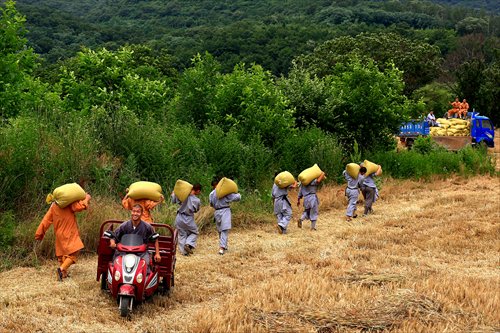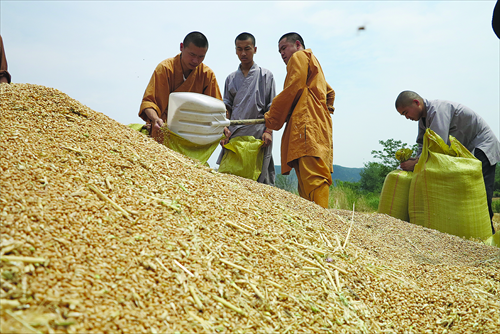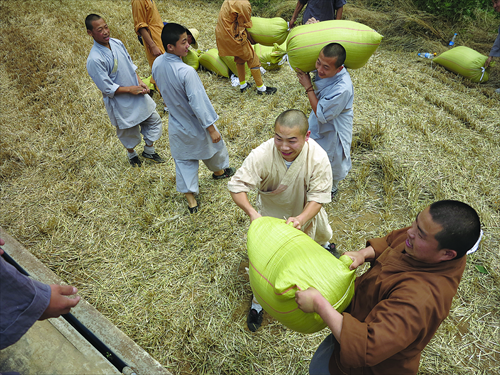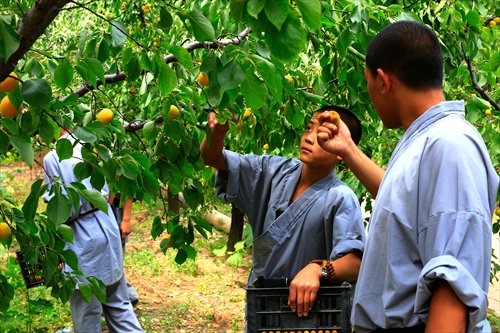HOME >> CHINA
Zen harvest for Shaolin monks
Source:Global Times Published: 2015-6-16 18:48:02

Shaolin Temple monks carry bags of wheat to a truck on June 14 on a farm near the temple. Photo: IC

Hoeing a vegetable patch on the farm Photo: CFP

Packing the wheat into bags Photo: CFP

Loading bags of wheat onto a truck Photo: CFP

Picking up apricots on the farm Photo: IC
On a farm to the west of the Pagoda Forest at the Shaolin Temple in Dengfeng, Central China's Henan Province, scores of monks are busy harvesting wheat.
Driving a reaping machine, packing the wheat into bags and loading them onto trucks, the monks have become skilled farmers.
Shaolin Temple, the legendary home of Chinese kung fu which has been accused of "over-commercialization," has rented a hilly area of 100 hectares.
Since last May, nearly one third of the land has become arable, including 8 hectares, equal in size to 10 soccer fields, planted with wheat.
The other arable land is covered by plants like rape and sunflower, various vegetables and fruit trees like apricot, peach, plum, watermelon and pomegranate.
The farm has become an abundant food source for the temple. Surplus flour, grain and oil will be given to poor families every month as part of the temple's charity program, according to the temple.
Master Yanzi, the person in charge of the farm, said working on the farm is an important daily practice of Zen Buddhism with a long history.
All the monks in the temple, who number more than 400, take turns on the farm, including abbot Shi Yongxin, said Master Yanzi.
The tradition is attributed to Mazu Daoyi, one of most influential Zen Buddhist masters in China during the Tang Dynasty (618-907) and his dharma heir Baizhang Huaihai, according to Master Yanzi.
Baizhang established the rule requiring monks to farm. There is even a story that when he was getting old, his disciples didn't allow him to farm, and he protested with a hunger strike. Since then, a well-known saying, "A day without work is a day without food," has been handed down among Zen Buddhists.
Because the Zen monks farmed, it helped them to survive anti-Buddhist persecutions better than other sects, which relied more on donations. These rules are still used today in many Zen monasteries.
Posted in: In-Depth